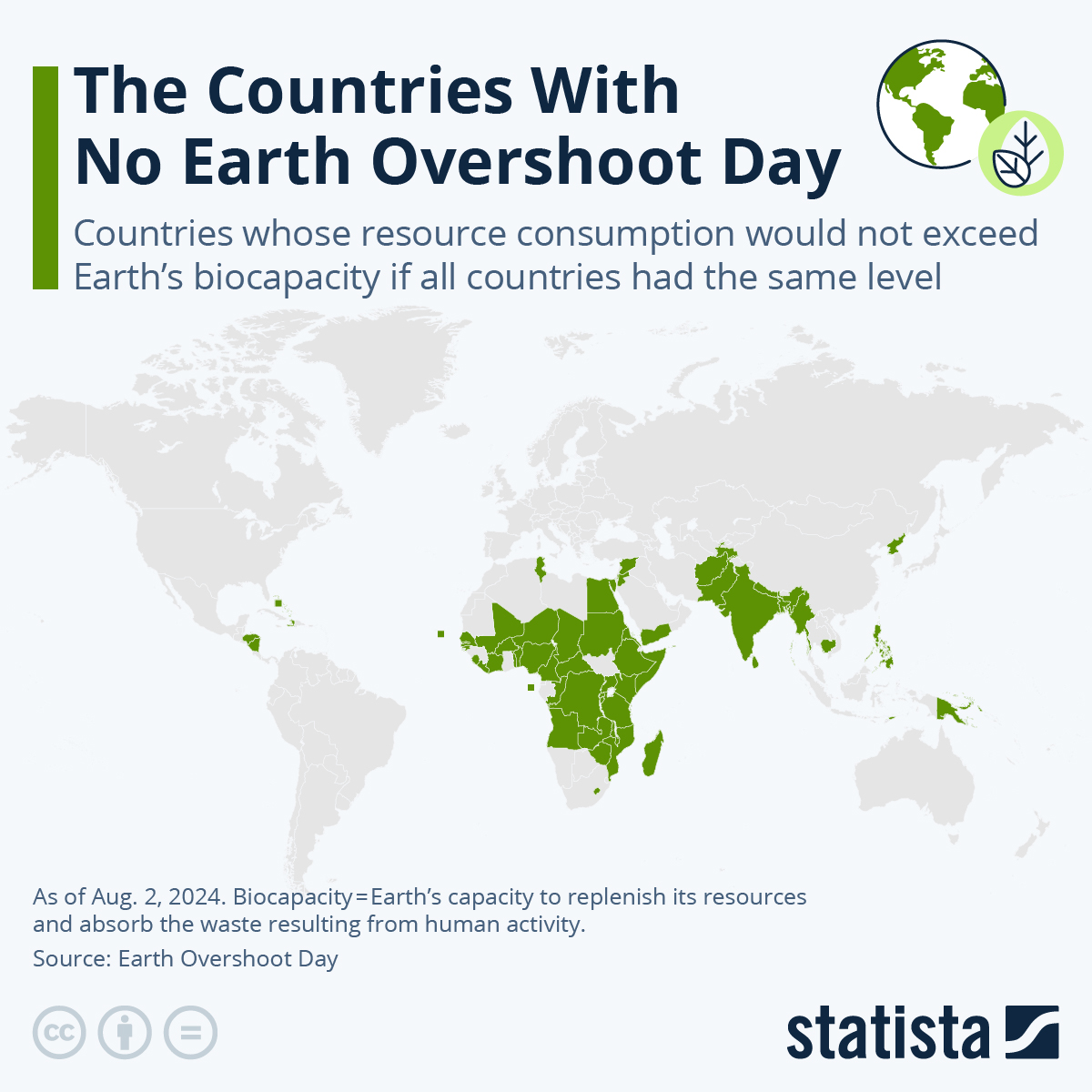If everyone lived like the inhabitants of the countries highlighted on our map, one Earth would suffice to meet the needs of humanity. As for the lifestyles of the 140 or so remaining countries, the ecological footprint exceeds the planet's biocapacity, i.e. all the natural resources the Earth can regenerate (and the waste it can absorb) in the space of a year. This excluded fossil fuels and minerals (which do not regenerate) but takes into account CO₂ emissions and the space for forests needed to offset them, similar to a net-zero scenario.
According to calculations by the NGO Global Footprint Network, as of August 1, 2024, humanity will have already consumed all the renewable resources the planet can replenish in one year. Humanity is thus living "on credit", and it would take 1.75 Earths to meet the needs of the world's population. Compared to this global average, the inhabitants of a country like Germany or France have an ecological footprint almost twice as high and there would have to be between 3 and 3.3 Earths if everyone lived like inhabitants of these countries. These countries' local Overshoot Days are therefore on May 2 and May 7, respectively. The United States even needs five whole Earths and had an Overshoot Day of March 14 this year.
Like with any calculation of this size, there are some weaknesses to the analysis, namely that there are sometimes gaps in the data, especially for smaller countries, and that the calculation lags behind around 1.5 years. The Earth Overshoot Day(s) for 2024 were calculated using data from 2022, which is also the reason the days are sometimes updated after the fact. As the model treats all countries the same, there can sometimes be results that are nonsensical when transferring them back to reality on a local level due to the consumption of fish. As reporting from Table Media shows, small nations like the Faeroe Islands, Iceland or Micronesia might not eat too much fish for their specific (island) environments, but when calculating a local Overshoot Day for them, their lifestyles would be rated as unsustainable because the world as a whole would in no way be able to consume as much fish. This is why Global Footprint Network does not publish these local calculations for the countries in question.










